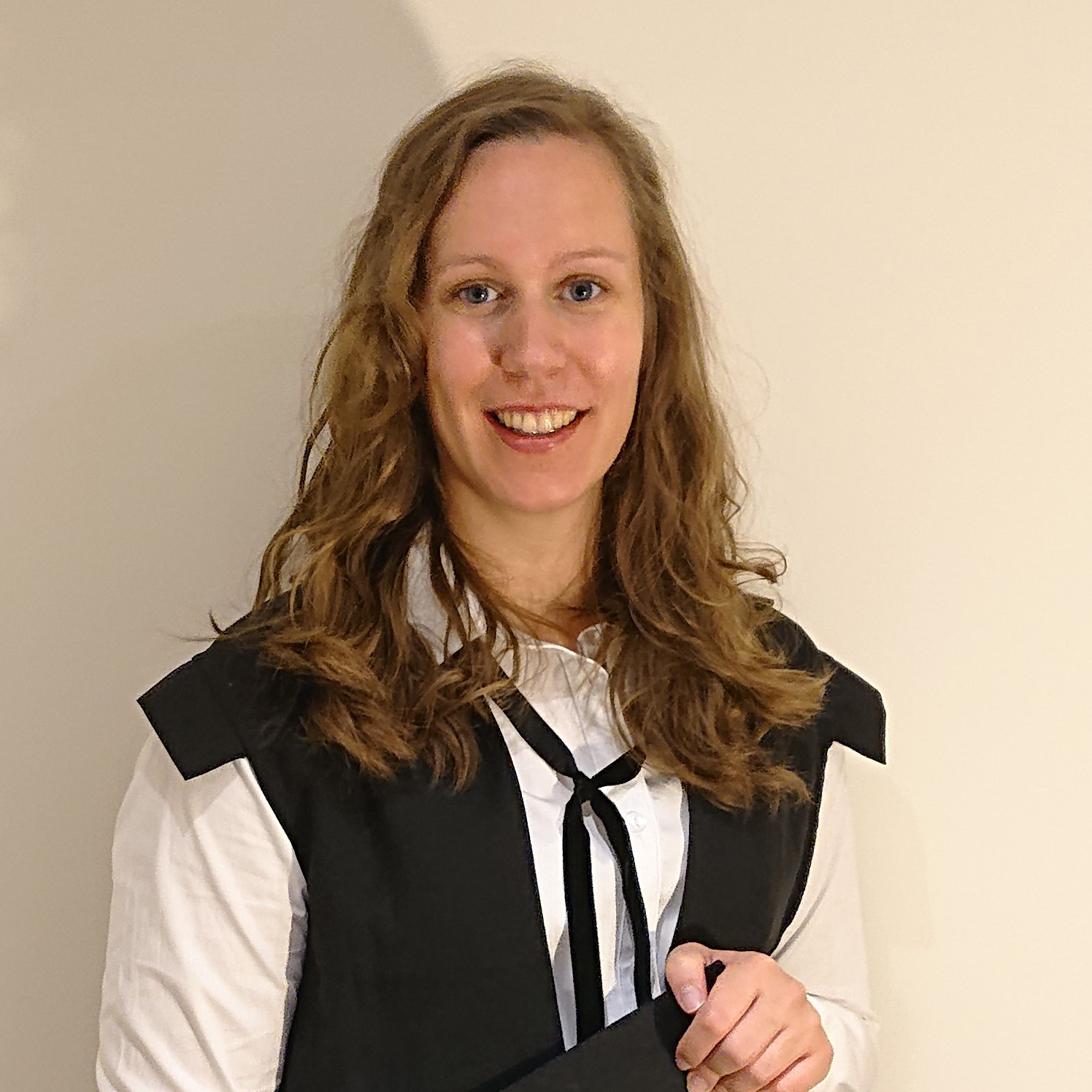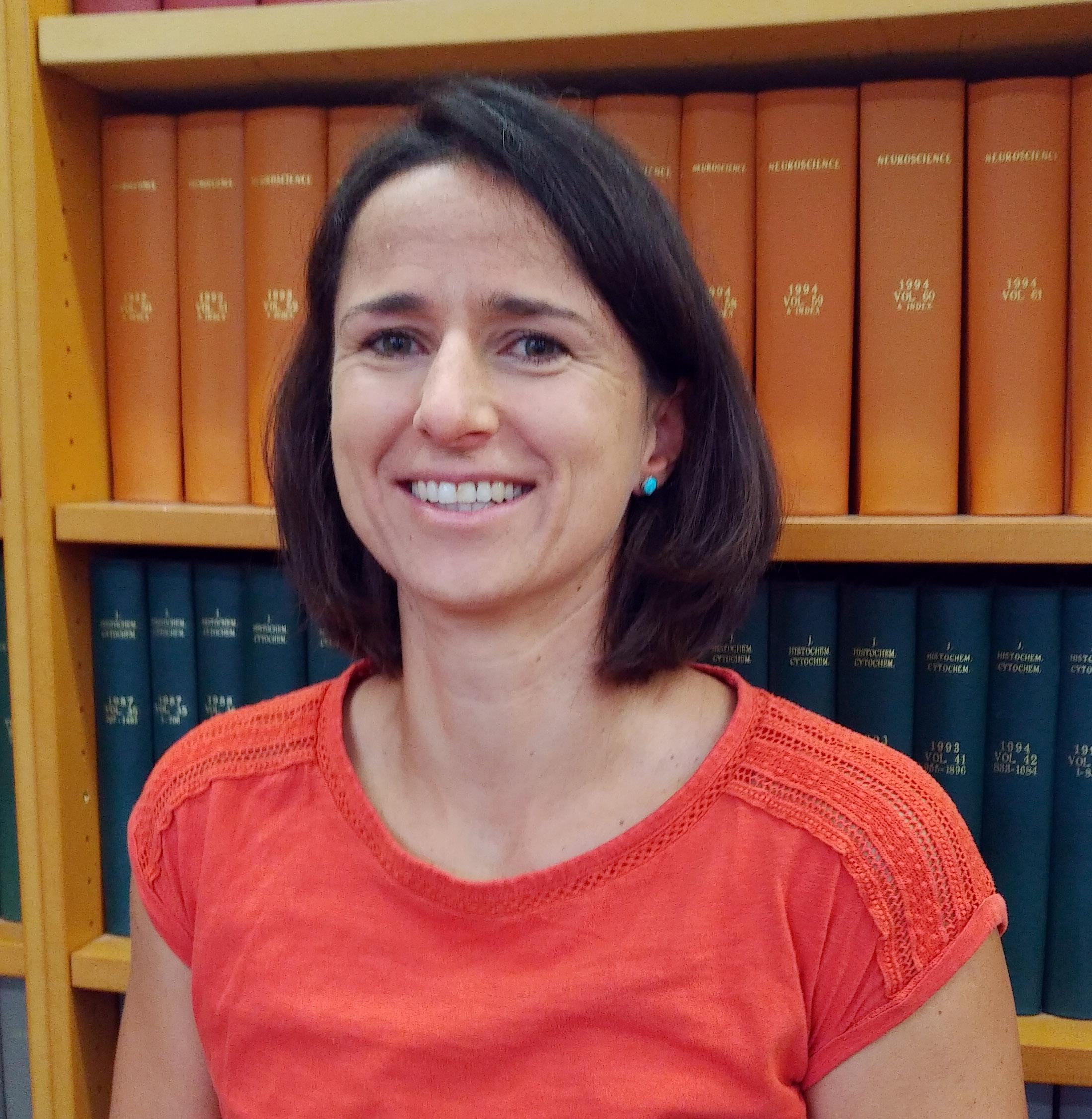
Our congratulations go to Unit D.Phil. student Naomi Berry for successfully defending her doctoral thesis, entitled “Anatomical and physiological connectivity of the basal ganglia-thalamocortical motor circuit”, in her viva voce examination on 4th March 2021.
Naomi’s viva examiners were Professor Gordon Arbuthnott (Okinawa Institute of Science and Technology, Japan) and Professor Colin Akerman (Department of Pharmacology, University of Oxford). The viva took place remotely via digital conferencing.
Naomi was supervised by Associate Professor Andrew Sharott (MRC BNDU) and Associate Professor Anna Mitchell (Experimental Psychology).

The Unit held its sixth annual Training & Careers Development Event on Thursday 21st January.
Professor Peter Magill, Unit Interim Director, started the Event by highlighting the resources and other careers support made available to the Unit by its host the Nuffield Department of Clinical Neurosciences. This was followed by an engaging and informative presentation on ‘personal effectiveness’ by Hannah Ravenswood from the University’s People and Organisational Development team.
In the first of two subsequent break-out workshops, Professor Andrew King, Department of Physiology, Anatomy & Genetics, gave some well-received advice on writing research grant applications, which was then followed by mock grant review panels at which the Unit’s early-career researchers explored what makes for good and bad applications (using as case studies the proposals authored by their senior colleagues!). In the second workshop, Rachel Bray of the University’s Careers Service led an interactive discussion of the ‘what and how’ of careers beyond academia. Group Leader Tim Denison, and former Unit members Dr John Huxter (now at Transpharmation Ltd.) and Dr Emilie Syed (now at Oxford University Innovation), also shared insights into their own career journeys from academia to industry and technology transfer.
The Event was delivered via digital conferencing, and was followed by informal chat and catch-ups in the Unit’s own Wonder Room.
Professor Charlie Stagg, Chair of the Unit’s Training & Career Development Committee, commented “Training and wider career support remain a priority for the Unit. Many thanks to our guest speakers for raising awareness about some of the challenges and successes of personalised career development. We are well placed to make the most of the opportunities that lie ahead.”

This month sees the retirement of Professor Peter Brown as Director of the Medical Research Council Brain Network Dynamics Unit at the University of Oxford. Professor Brown has led an MRC-funded research team for over 25 years. He established that synchronised rhythms amongst nerve cells in the basal ganglia of the brains of people with Parkinson’s are linked to symptoms of stiffness and slowness, and successfully pioneered therapeutic interventions that leverage this phenomenon. In 2015, he became the founding Director of the MRC Brain Network Dynamics Unit, and has since overseen the growth of the Unit into one of the leading international research centres exploring neuronal dynamics in health and disease.
Deputy Director Professor Peter Magill will become Interim Director, succeeding Professor Brown to ensure the Unit’s continued success.

We are pleased to welcome Demi Brizee to the Dupret Group for a period of advanced research as part of her BBSRC Interdisciplinary Bioscience Doctoral Training Programme at the University of Oxford.
Demi studied Neuroscience and Medicine at the Erasmus University Rotterdam in the Netherlands, where she completed her M.Res. in Neuroscience with Prof Steven Kushner. There, Demi studied the myelination of GABAergic interneurons and its dynamics in both human and rodent neocortex. Her studies combined in vivo manipulation of neuronal activity, advanced confocal and super-resolution microscopy, and 3D single-cell reconstruction techniques.
During Demi’s time in the Unit, she will work with Prof. Dupret to learn about mouse hippocampal network physiology using multichannel extracellular recording techniques during sleep and memory-guided behaviour.

We are pleased to welcome Olivia McGinnis to the Unit as a visiting student.
Olivia is currently pursuing her D.Phil. in Neuroscience at Oxford on a Rhodes/Clarendon Scholarship. Olivia joins the Dupret Group for spring 2021, where she will investigate hippocampal neuronal dynamics during memory task in mice under the supervision of Dr. Helen Barron.
Olivia studied Neuroscience at Harvard University, where she completed her undergraduate thesis research with Dr. Florian Engert in 2020. There, Olivia performed detailed kinematic analyses of larval zebrafish to understand algorithms implemented during goal-directed behaviours, specifically decision-making during escapes in the presence of obstacles. Her previous studies combined two-photon interrogation of a neural circuit with behavioural assays. Working with Helen in the Unit, Olivia will now learn hippocampal network physiology using a combination of in vivo multichannel extracellular recordings and calcium imaging in mice.

Our congratulations go to Unit D.Phil. student Max Rothwell for successfully defending his doctoral thesis, entitled “Phase-dependent closed-loop modulation of beta-frequency network oscillations in Parkinsonian rats”, in his viva voce examination on 11th December 2020.
Max’s viva examiners were Dr Nicolas Mallet (University of Bordeaux, France) and Associate Professor Huiling Tan (NDCN, University of Oxford). The viva took place remotely via digital conferencing.
Max was supervised by Associate Professor Andrew Sharott and Dr Colin McNamara.

We are excited to announce that the MRC Brain Network Dynamics Unit has up to 7 MRC-funded studentships available from October 2021 to support Ph.D. (D.Phil.) projects as part of the Nuffield Department of Clinical Neurosciences.
The MRC-funded D.Phil. projects on offer are:
Project 1. Interfacing with the brain for therapy. Supervisor: Associate Professor Huiling Tan
Project 2 (up to 2 studentships). Investigating neuronal dynamics of memory circuits. Supervisor: Professor David Dupret
Project 3 (up to 2 studentships). Computational model of dopamine function. Supervisor: Professor Rafal Bogacz
Project 4 (up to 2 studentships). Neuronal cell and circuit substrates for purposeful movements. Supervisor: Professor Peter Magill
The closing date for applications is 12.00 midday UK time on Friday 8th January 2021.
See our Studentships page for more details on projects and how to apply.
We welcome applications from both Home Students and International Students. Candidates can apply for more than one D.Phil. project. Candidates are strongly encouraged to contact project supervisors in advance of applying.

Our congratulations go to Unit D.Phil. student Maaike van Swieten for successfully defending her doctoral thesis, entitled “Physiological modulation of learning and decision-making”, in her viva voce examination on 18th November 2020.
Maaike’s viva examiners were Professor Michael Frank (Carney Center for Computational Brain Science, Brown University, USA) and Professor Chris Summerfield (Department of Experimental Psychology, University of Oxford). The viva took place remotely via digital conferencing.
Maaike was supervised by Professor Rafal Bogacz, Associate Professor Sanjay Manohar, and Professor Peter Magill.

We are pleased to welcome Dr Katja Hartwich to the Unit. Katja has joined the Dupret Group as a Research Assistant to provide specialist scientific support to the Group’s projects related to memory-guided behaviour using in vivo network recordings and anatomical techniques.
Katja graduated with a B.Sc. in Biology from the University of Marburg, Germany, and then with a M.Sc. in Animal Physiology from the University of Tübingen, Germany. She completed her doctoral studies in Biology at the Center for Brain Research, Vienna, Austria, and the MRC Anatomical Neuropharmacology Unit, University of Oxford, under the supervision of Prof. T. Klausberger. During her dissertation project, Katja studied how different types of GABAergic interneurons in the rat prefrontal cortex contribute to local and hippocampal network oscillations. In 2009, Katja joined the University of Oxford, where she has worked in three roles: As an MRC Career Development Fellow in Neuroscience at the MRC Anatomical Neuropharmacology Unit in the group of Prof. P. Somogyi where she investigated the activity of hippocampal interneurons during behaviour (until 2011); as a Graduate Research Assistant in Medical Sciences at the Department of Psychology in the group of Prof. J. Duncan (until 2015); and as a Research Technician in Neuroscience at the Department of Pharmacology in the group of Prof. P. Somogyi (until 2020). Katja has thus developed a broad laboratory skill-set spanning electrophysiology, anatomy, optogenetics, microscopy and behavioural analyses.

Many congratulations to Unit Group Leader David Dupret on being awarded the title of Professor of Neuroscience by the University of Oxford.
Titles of Full Professor are conferred annually in recognition of an individual’s significant influence on their field of study, as well as their track records in teaching and academic citizenship.
Unit Director Professor Peter Brown commented “I am thrilled that David’s remarkable research defining the neural basis of memory-guided behaviour has been recognised by the University in this way. The conferment of the title Professor of Neuroscience reflects both the considerable strength of David’s research and his commitment to teaching. Together with the rest of my colleagues at the Unit, I congratulate David on this major achievement!”